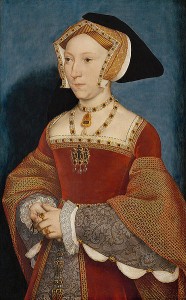 On this day in history, 1st April 1536, Eustace Chapuys the imperial ambassador, wrote a very long and detailed letter to Emperor Charles V, a letter that is very interesting.
On this day in history, 1st April 1536, Eustace Chapuys the imperial ambassador, wrote a very long and detailed letter to Emperor Charles V, a letter that is very interesting.
In this letter, Chapuys wrote of how the king was “paying court” to one of Queen Anne Boleyn’s ladies, a certain Jane Seymour, and that he had sent her a purse of sovereigns accompanied by a letter.
What did the “young damsel” do?